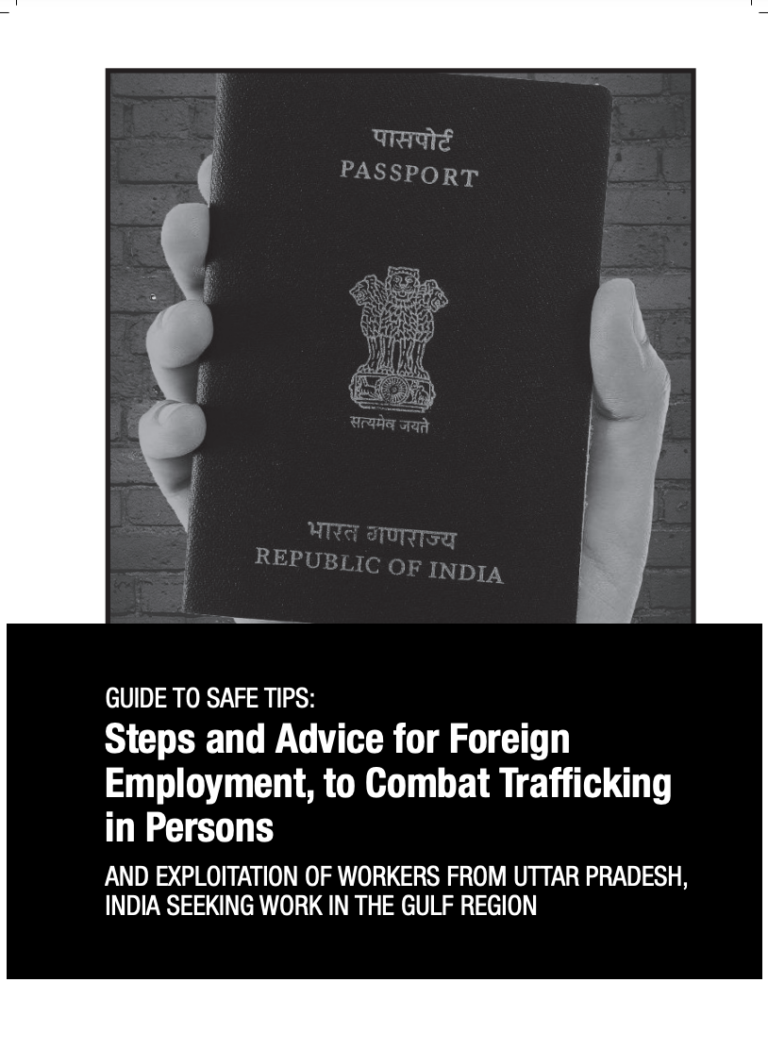Each year, hundreds of thousands of workers from Uttar Pradesh travel to jobs in Qatar, the United Arab Emirates (UAE), and Saudi Arabia, as well as to other neighboring countries in the Middle East and North Africa region such as Jordan. These workers travel far from home for a foreign job in hopes of earning a greater income and working towards a better life for their families. Of all the states in India, Uttar Pradesh (UP) is among those that send the greatest number of workers to Gulf countries.
Workers from UP are mainly hired for “low-wage” jobs in the Gulf region. Many find jobs as laborers, masons, electricians, and carpenters in the construction sector, or as drivers, groundskeepers, or manual laborers in hotels or airports. Many workers from UP have a successful foreign employment experience in which they are treated fairly by their employer, earn a fair salary, send funds back home, and save money to secure a better future for themselves and their families. While foreign employment can present promising opportunities, workers need to be equally aware of the risks they may face that can become barriers to a successful foreign employment experience, and which can result in not earning anticipated wages, exploitation by a foreign employer, and other disappointing outcomes.
The COVID-19 pandemic of 2020-2021 has presented additional challenges for workers. During the pandemic, it has been documented that thousands of low-wage foreign workers in the Gulf region have been denied wages for six months or longer, have lived in unhealthy workers’ accommodations, and have been denied access to healthcare.
The purpose of this SAFE TIPS guide is to support civil society and community-based organizations in Uttar Pradesh to raise awareness among workers and their communities about the risks that workers face in seeking foreign employment, and the practical steps they can take to protect themselves.

